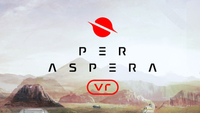I took Elon Musk's advice and nuked Mars in this amazing Quest game
In order to make the planet safe for humans, of course.

Have you ever dreamed of exploring space? Maybe you'd love to be one of the first people to live on Mars, even if only for a short while. In Per Aspera VR for the Quest, players are tasked with terraforming the Red Planet — that means making it more Earthlike — in order to harbor human civilization.
But, as science will tell you, there are a million and one theories on how to terraform a planet. One prevailing theory from SpaceX's Elon Musk — now of Twitter fame, I suppose — is to drop nuclear bombs on the planet's poles, vaporizing the ice caps and, thus, releasing carbon dioxide and water that would create a more livable atmosphere for human life.
Turns out, in Per Aspera's intricate story, China attempted to do just this and was almost successful. I'll save the reasons why they failed for you to find out in the game but, in the wake of that failure is where Per Aspera VR begins. It's now one of my all-time favorite Quest games because it's not only incredibly deep and rewarding, but it's also one of those game's that passes time quickly, leaving you wondering how you're still playing at 2 AM.
Life begins on Mars
Actually, according to Per Aspera's story, it's artificial life that begins life on Mars. More specifically, you play the role of AMI, an artificial intelligence tasked with building the first habitable base for researchers on the Red Planet. You'll start with nary a lander and some resources but can quickly construct buildings using worker drones.
And yes, this game uses real topographical maps of Mars to create a realistic planet, even if the graphics on the Quest can be a bit simplistic at times.
Much as you would do in classic RTS games like Starcraft or Age of Empires, your initial goal is to start mining as many precious resources as are available. You do this by placing mines specific to the task — iron mines to mine iron, silicon mines to mine silicon, etc. — which lets you build factories in order to construct more research bases.
You play the role of AMI, an artificial intelligence tasked with building the first habitable civilization on the Red Planet.
Throughout the game, you'll research ways of making the planet livable for humans, all of which culminate in eventually melting the polar caps and injecting enough CO2 and Oxygen into the air to make it breathable. That atmosphere also works to keep out unwanted intruders like asteroids which you'll deal with plenty of times in the early game.
Be an expert in 5 minutes
Get the latest news from Android Central, your trusted companion in the world of Android
There's nothing quite so harrowing as hearing the dreadful impact of asteroids and wondering which of your buildings just got pummeled to dust.
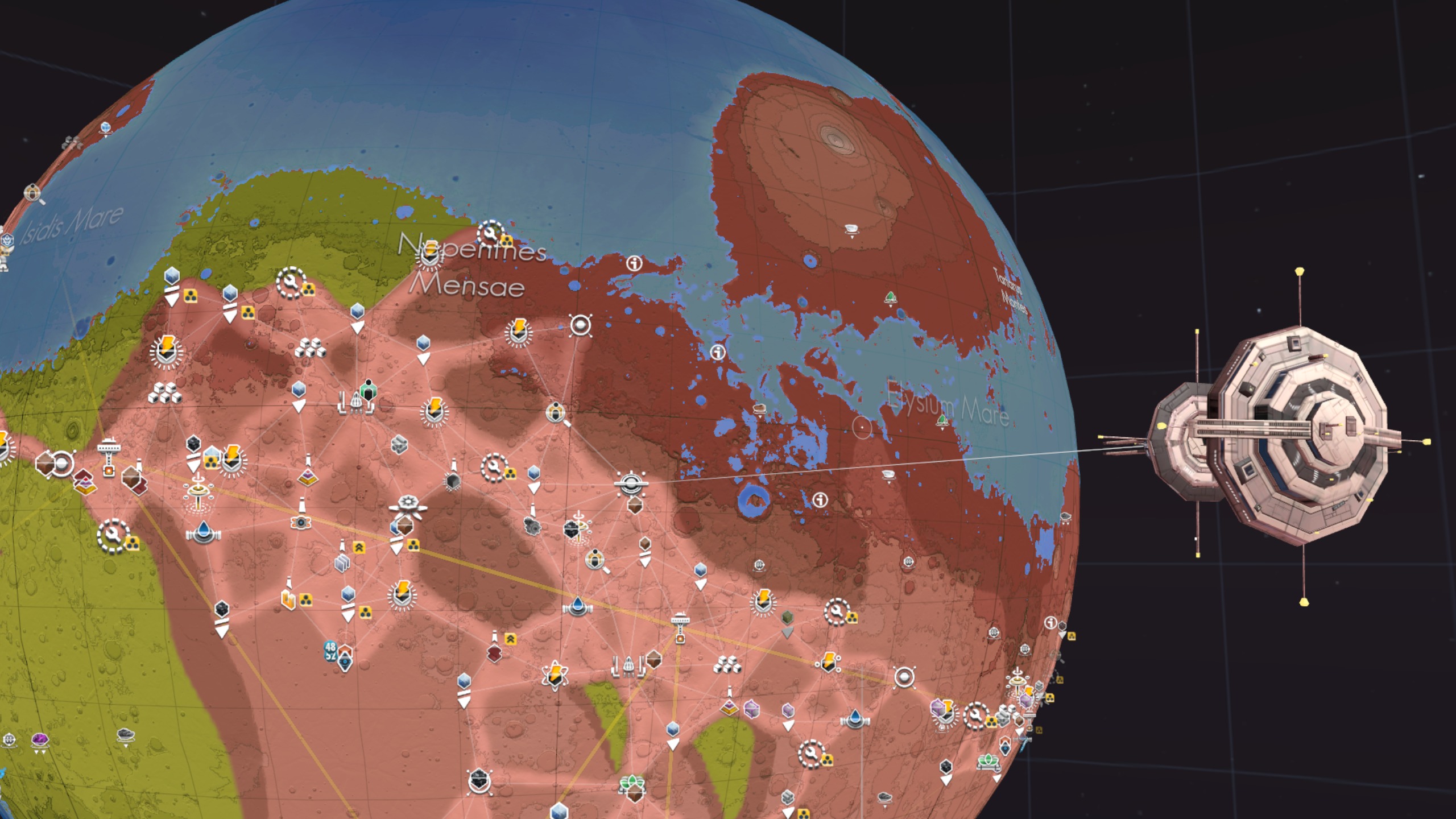
As you progress and terraform the planet, water will begin to appear on the surface, eventually creating vast oceans and transforming the red soil into lush greenery. As you might expect, what you build early on could very well get drowned out as the water rises, forcing players to scrap old habitats and begin building elsewhere.
You'll even find the dregs of previously-attempted missions to discover and even colonize Mars as you progress. That aforementioned Chinese mission to nuke the planet? That one's got a very, very interesting backstory attached to it that you'll find out about when playing the game.
Per Aspera VR is fully voiced and includes a TV series-quality narrative to go along with its deep, strategic gameplay.
Throughout the entirety of the game, you'll be wrestling with the fact that you're "just" an AI and not a living being. Per Aspera VR is a fully-voiced game with truly excellent voice actors that are both convincing and professional-sounding. This is not an indie game with one person doing all the voicework.
As such, you'll receive calls from NASA engineers, answer questions from researchers, and even talk to yourself as a sentient AI learning how to cope with the fact that humanity's destiny on Mars is almost entirely kept up to your discretion. Yes, that even includes monolog trees that could affect your responses in future conversations.
Superb gameplay and mechanics
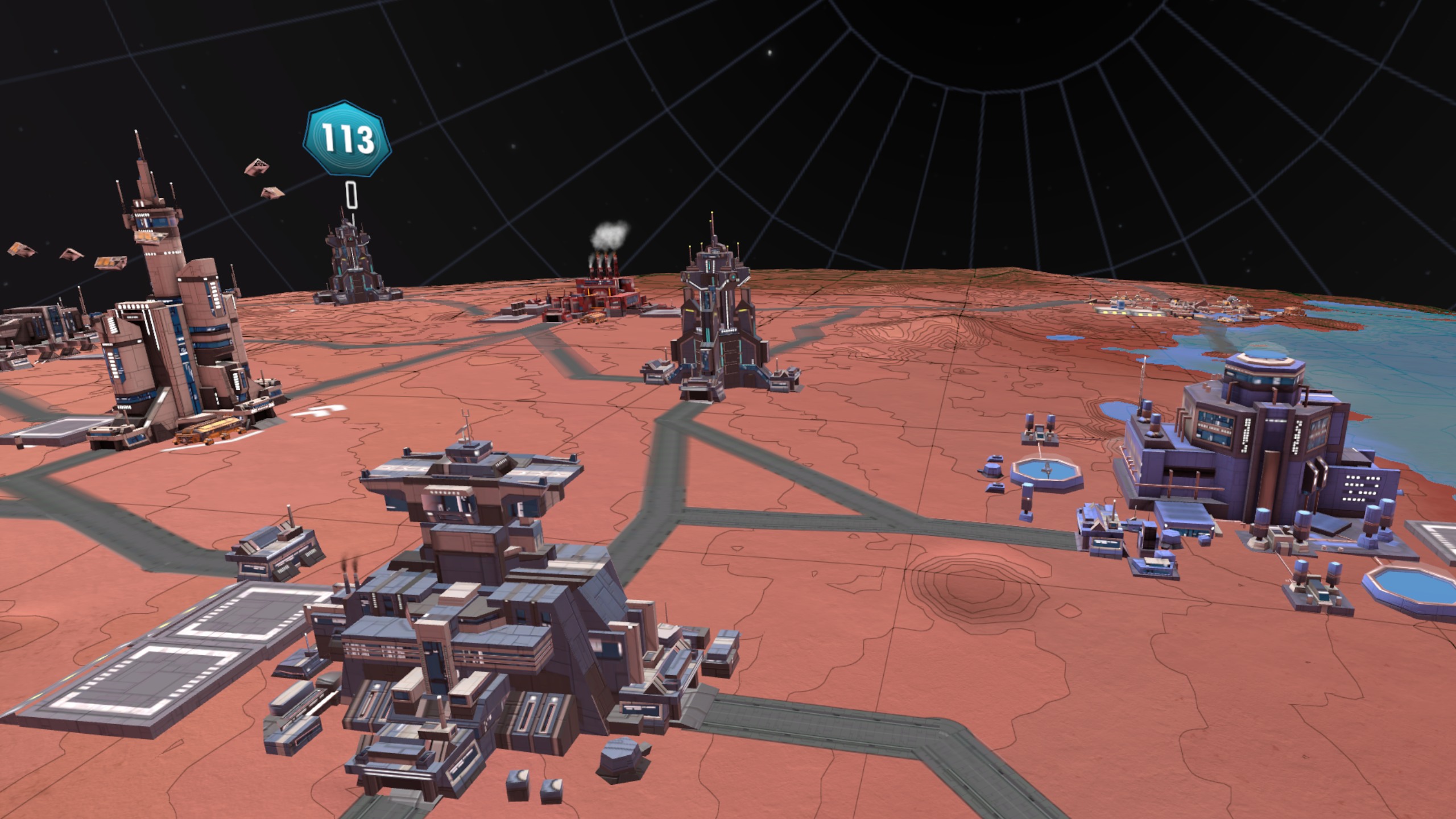
As a VR translation of a popular PC strategy game, Per Aspera VR does a phenomenal job of taking complex, deep gameplay mechanics and translating them from a keyboard and mouse interface to one that works with the Quest's Touch controllers.
In fact, Per Aspera's mechanics work so well, I'd like to see some of these concepts adapted in other strategy games in the future.
Surprisingly, one such mechanic actually bothered me visually at first. In Per Aspera VR — like most VR strategy games — you can zoom all the way in to see buildings and units up close or zoom way out to get a planetary view of the action. This mechanic works incredibly well and takes no time to quickly zoom in and out, rotate the planet, and switch between settlements in a few seconds flat.
You can easily and quickly zoom in and out, rotate the planet, and switch between settlements in a few seconds flat.
But, as you zoom out, your buildings quickly disappear and are replaced with simple icons denoting the structure or resource type. I thought this to be overly simplistic at first, assuming that it was mainly done because of the technical limitations of the Quest's hardware.
Maybe it started out that way but, after several hours of playtime, I realized that the iconography used is so unique that I could readily identify exactly what was going on in any given area of the planet in just a few seconds' time.
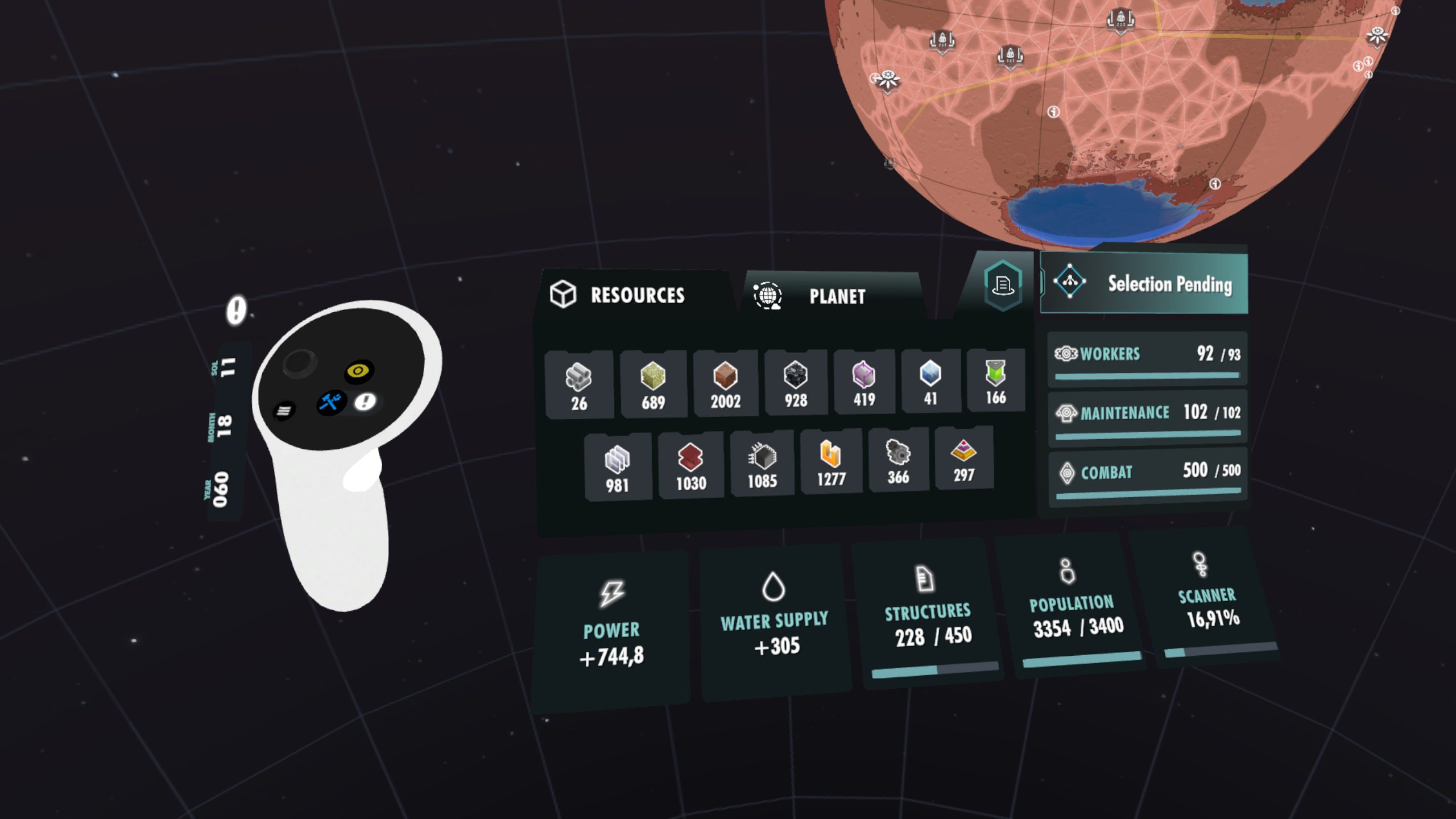
The UI is extremely good, even if it could use more contextual pop-ups that would help players who might forget what something does. Yeah, that's definitely me. Even still, it's translated incredibly well to VR.
Holding the grip button at any time will show you a perfect view of all your colony's resources and give you quick, actionable information for what to build next.
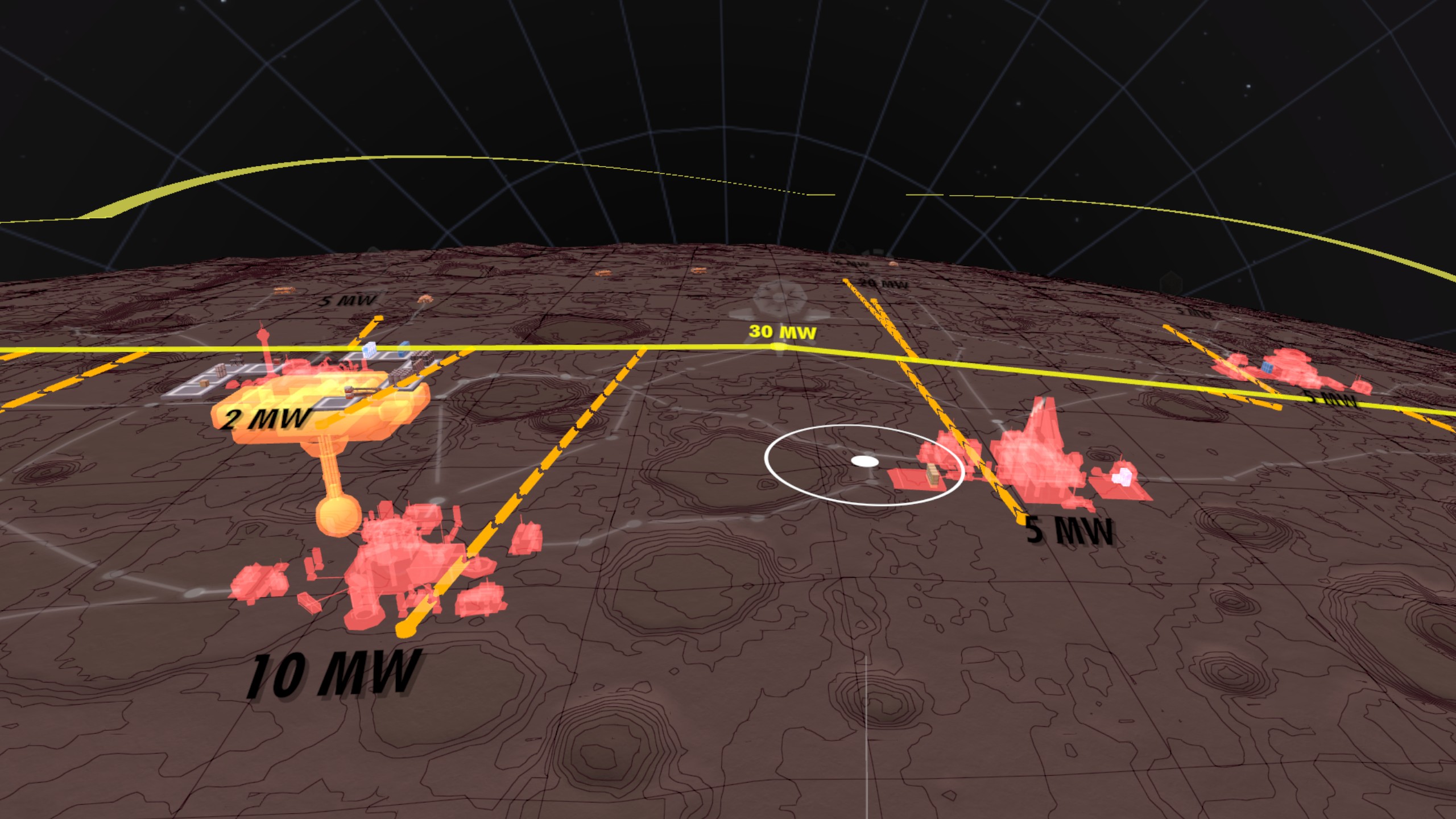
The radial interface for building and switching between the different "sights" in the game to manage things like power, maintenance, traffic, and other necessities is very well done and less confusing to me than how Cities: VR does it, for example.
Overall, its complexity is somewhere in-between Cities: VR and Little Cities with the added bonus of having a superb, TV series-worthy narrative on top. If you enjoy strategy games at all, this is a game you wholly owe it to yourself to pick up. Just, maybe, play while seated instead of standing. There aren't any real comfort options to speak of and rotating a planet while "standing" in space can feel a bit weird sometimes.
Per Aspera
Earth is on its way out so now it's time for humanity to set its sights on the next big thing: Mars. Terraform the planet and make it livable for humans as you control the AI that is tasked with saving civilization.
Buy on: Oculus

